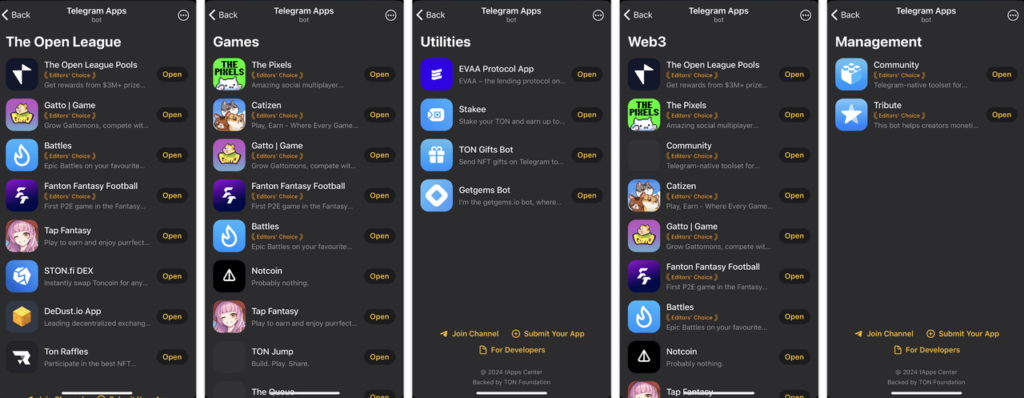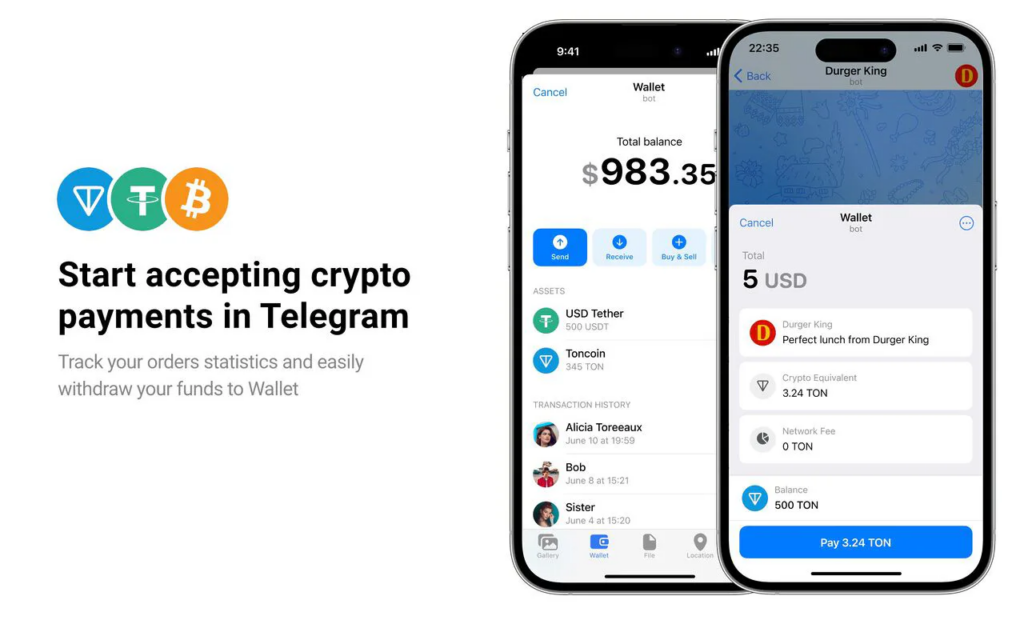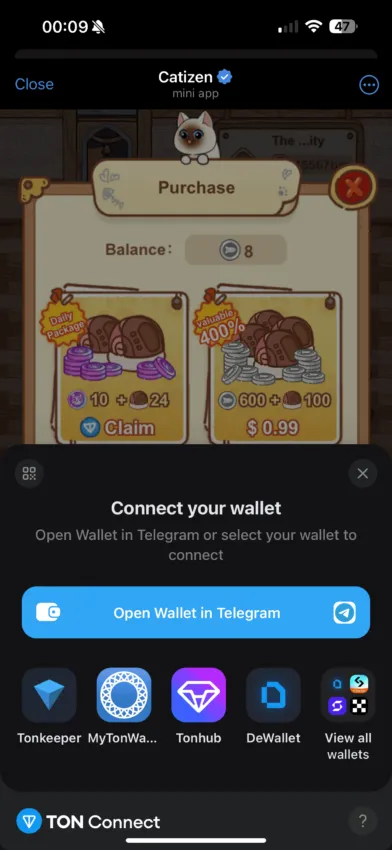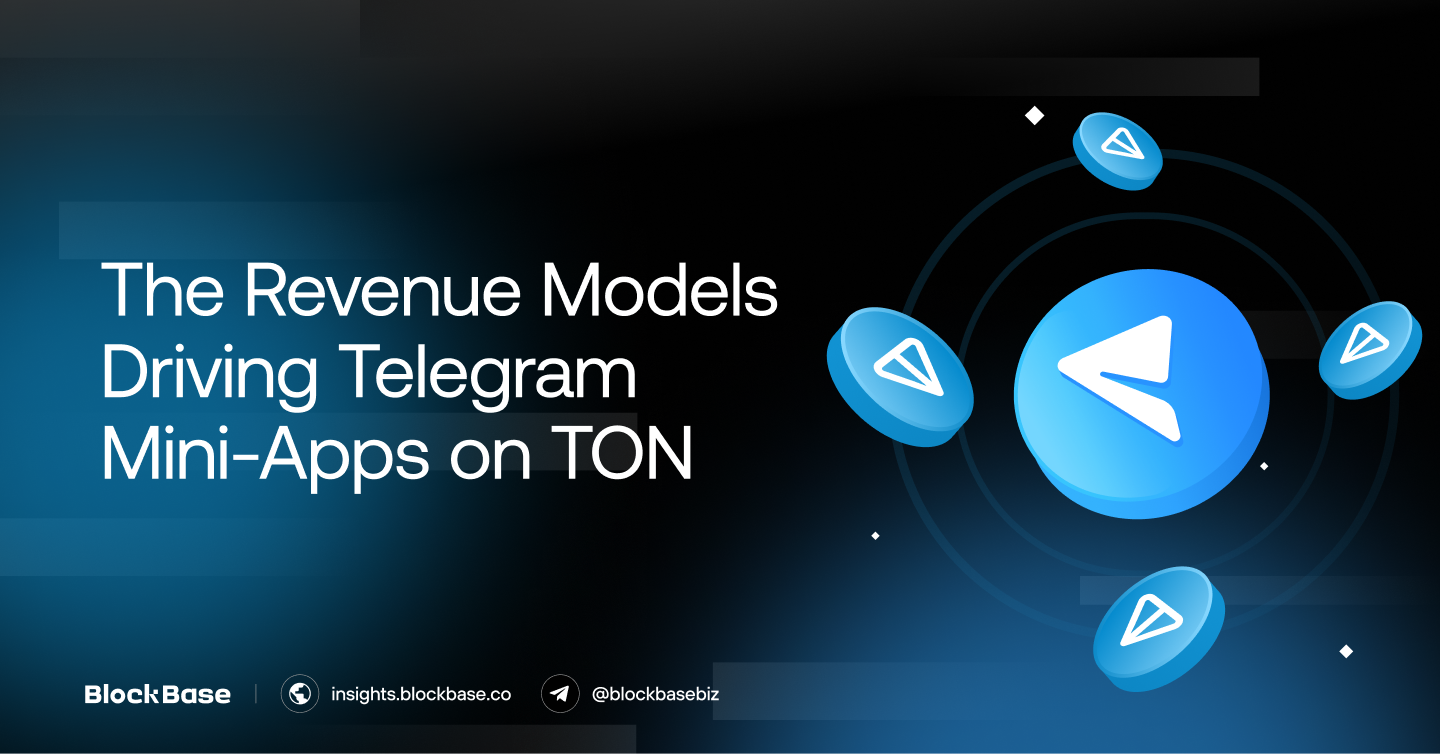Telegram mini-apps, powered by the TON blockchain, are rapidly emerging as a significant player in the digital landscape, akin to WeChat mini-programs. These lightweight applications allow users to engage with various services directly within the Telegram platform, offering developers new avenues for monetization. This article explores four primary profit models for Telegram mini-apps: token issuance, in-app purchases, advertising revenue, and brand partnerships.

1. Token Issuance
One of the most straightforward and impactful profit models for Telegram mini-apps is token issuance. This involves creating a unique token that can be utilized within the app’s ecosystem. The success of this model largely depends on attracting a substantial user base.
For instance, some mini-app tokens have reached millions of blockchain addresses; DOGS has surpassed 5 million, while Ethereum’s popular PEPE token has fewer than 300,000 addresses. The conversion of these users into verified KYC users on centralized exchanges introduces a pre-deposit model, linking each Telegram user to a CEX account.

This strategy not only facilitates user acquisition for exchanges but also enhances the overall value of the token by ensuring a robust trading environment.
2. In-app Purchases
Another significant revenue stream for Telegram mini-apps is in-app purchases. Similar to gaming platforms like WeChat, this model allows users to buy virtual items, character skins, or in-game currency to enhance their experience.
A notable example is the TON mini-game Catizen, which has attracted over 34 million users within six months of its launch. With more than 800,000 paying users and an average revenue per paying user (ARPPU) of $33, Catizen generated approximately $26.4 million in in-app purchases.

The game incentivizes spending by rewarding users who make purchases with additional benefits such as airdrops of its native token. This strategy not only boosts immediate revenue but also fosters user loyalty and engagement.
3. Advertising Revenue
Advertising revenue is another lucrative model for monetizing Telegram mini-apps. Just as WeChat offers various ad formats—such as rewarded video ads and banner ads—Telegram allows developers to incorporate similar strategies into their mini-apps.
For instance, games like Hamster Kombat utilize an advertising model where players can earn rewards by watching ads, thereby enhancing user engagement while generating income for developers. In contrast to pay-to-win models like Catizen’s, Hamster Kombat encourages users to interact with advertisements without requiring direct payments. This approach broadens the potential audience and increases overall engagement within the app.
4. Game Distribution and Brand Partnerships
Finally, game distribution and brand partnerships represent an innovative monetization strategy for developers. By collaborating with brands or embedding advertisements within their games, developers can create mutually beneficial relationships that drive revenue. This model not only serves as a form of advertising but also opens avenues for joint promotions and strategic partnerships.
For example, Hamster Kombat not only focuses on ad revenue but also partners with other mobile games to encourage players to download and play these titles for rewards. This model allows players to support the game without spending money directly while enhancing overall engagement across multiple platforms.
5. Final Thoughts
Telegram mini-apps are redefining how developers approach monetization in the digital landscape. By leveraging models such as token issuance, in-app purchases, advertising revenue, and brand partnerships, these applications provide diverse opportunities for generating income while engaging users effectively. As more developers explore these avenues within the TON ecosystem, we can expect continued innovation and growth in this burgeoning market.
In summary, the integration of these profit models allows Telegram mini-apps not only to thrive financially but also to enhance user experience through engaging content and interactive features. The future looks promising for developers willing to harness the potential of this dynamic platform.
The information provided in this article is for reference only and should not be taken as investment advice. All investment decisions should be based on thorough research and personal evaluation.





